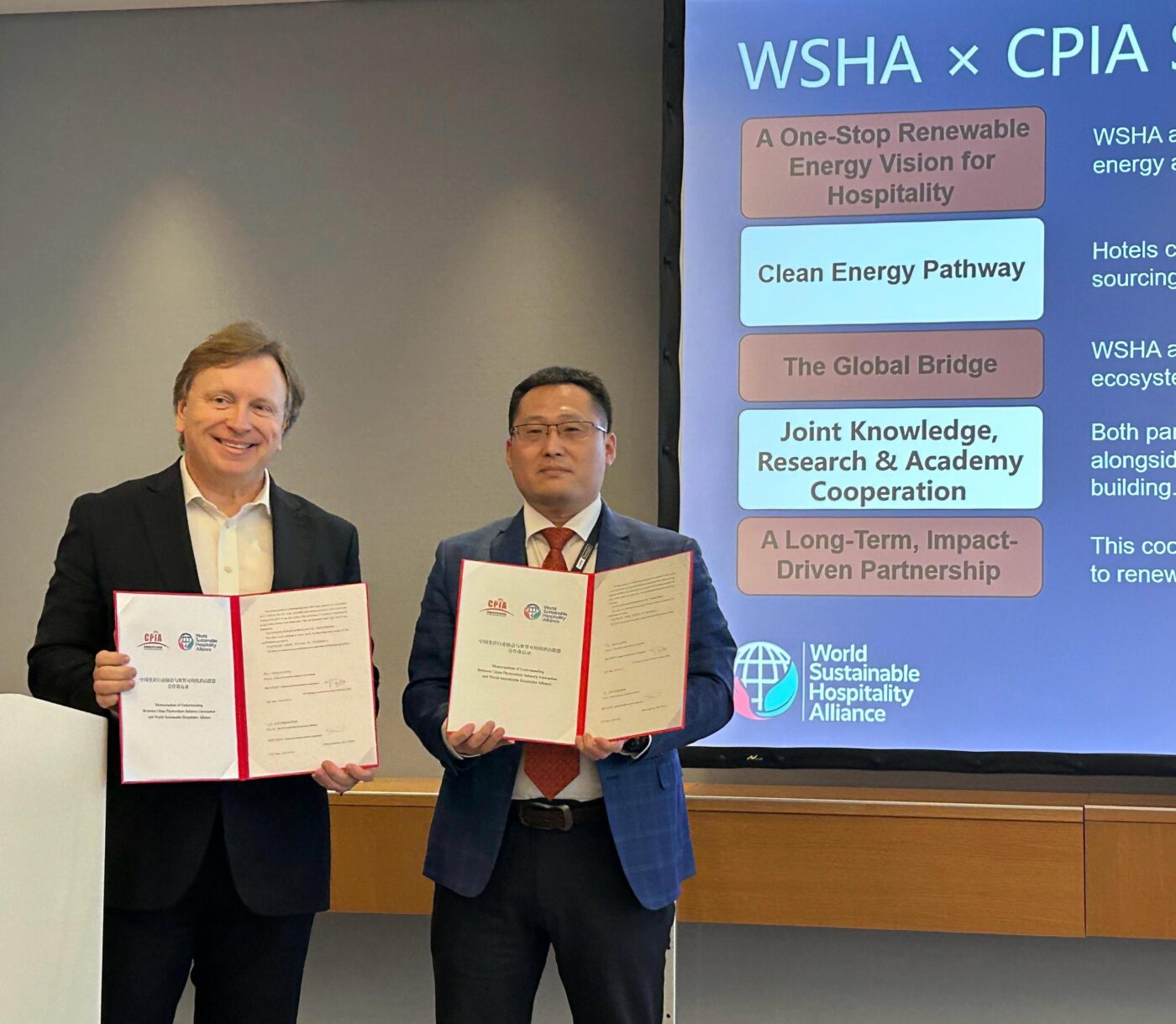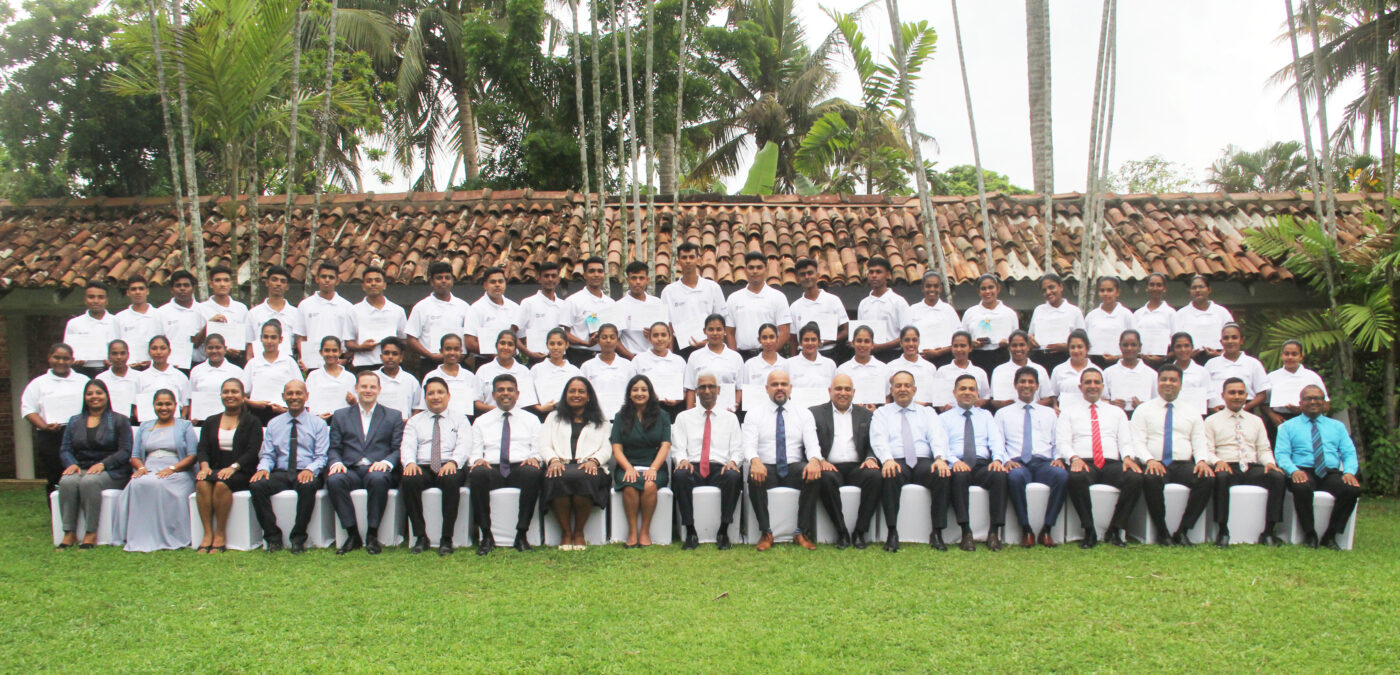A thought piece from Jeremy Oppenheim, Founder and Senior Partner at Systemiq.
Many of our current economic systems are broken – we are operating way outside our planetary and social boundaries and approaching dangerous tipping points.
I gave this warning at the Sustainable Hospitality Alliance’s Spring Summit, last month, which saw the Alliance launch its bold new global strategy to accelerate the industry’s move towards net positive hospitality. Leading brands have agreed on a shared vision for a prosperous and responsible sector, one that gives back to the destination more than it takes. It could be a new era for a fragmented hospitality industry.
In the firing line of climate change
The conversations at the summit confirmed that the risks from climate change are accumulating and hospitality is right in the firing line.
From hurricanes to wildfires, the hospitality industry is being deeply impacted by extreme weather. While the sector has generated benefits for economies, communities and nature, high emissions and destruction of nature inflicted by developments undermine these benefits and the value proposition of the industry itself. 80% of the value of tourism goods and services is highly dependent on nature.
As the industry fights back from the downturn during the COVID-19 pandemic (it’s expected to return to 4% annual growth this year1), this is a critical point in resetting the industry to ensure growth has a positive effect on the world.
A pathway to change
The Sustainable Hospitality Alliance has worked to develop a ‘north star’ for the industry. The Alliance’s Net Positive Pathway provides a clear and compelling vision for net positive hospitality – an actionable roadmap for businesses. This echoes the vision laid out in Systemiq’s 2022 “Better Travel & Tourism, Better World” report, outlining five key elements of a net-positive tourism system: climate, nature, communities, behaviour shift and resilience.
Radical collaboration
Solutions are emerging. Amsterdam’s Schiphol airport has partnered with hospitality companies to offer Electric Vehicle shuttles in 2024, set to cut 1.9 MT GHGs. Bali has launched an ambitious 10 New Bali’s programme to diversify travel flows by developing new tourism destinations. Technological solutions include Winnow, an AI tool that can help hotels to cut food waste in half.
Yet industry atomisation makes it hard to scale these solutions. Complex, intersecting industries within travel and tourism, low levels of concentration within hospitality, combined with complex ownership structures and supply-chains, makes it difficult to coordinate action. But the good news is: you’re not alone. I have spent over 20 years working in sustainability and system change – with coalitions, multinationals and startups. In every industry – from food to energy to aviation, they grapple with the same threats. Every industry thinks theirs is the hardest in which to scale up solutions. We need to embrace that this is the reality for every industry – and talk about what we’re going to do about it.
The opportunity is huge, the time is now
We can see this collaboration in action with the Alliances’ new strategy, which will only accelerate and help scale up solutions to making the industry more sustainable.
In fact, through collaboration, the hospitality sector can turn its complexity to its advantage, driving outsized impact across the industries with which it intersects. With over 22m flights per year, hospitality players can equip and incentivise travellers to adopt more sustainable modes of transport: for example, choosing Sustainable Aviation Fuel flights or high-speed rail. If we look at the food industry, hospitality is responsible for 12% food waste worldwide.2 Cutting this dramatically could have huge implications across food and agriculture supply chains – and improve bottom-line. In the construction industry there are around 14,000 hotels in the global pipeline.3 What if there were a meaningful shift to renovations and consistent use of sustainable construction materials?
“No alternative” to net positive: former Unilever CEO
Paul Polman, business leader, climate and equality campaigner and co-author of “Net Positive: how courageous companies thrive by giving more than they take”, shares this conviction. In a speech at the Sustainable Hospitality Alliance summit, he applauded the Alliance’s new strategy and described the shift to net positive as the “biggest opportunity” for businesses.
However, Polman said that continuing business as usual risks reputations and revenues. He did not shy away from telling the audience that the journey will be bumpy and require unusual partnerships. He urged the industry to move faster and adopt high ambitions.
There is no alternative, according to Polman. The destination is a model that serves business and communities; an industry that gives more than it takes.
This model is Net Positive Hospitality. If the industry can achieve this, it has a bright future.
To find out more about our new five-year strategy, visit sustainablehospitalityalliance.org/strategy/.




